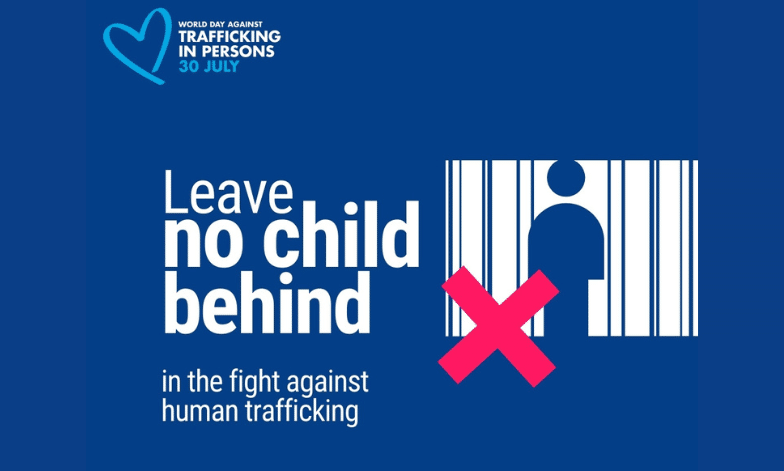On this ‘World Day Against Trafficking in Persons’, the UN Secretary-General António Guterres has emphasised the plight of the most vulnerable in our societies – children.
“Human trafficking is a horrific crime that targets the most vulnerable among us. Today, we focus on the children who account for one-third of trafficking victims,” he said in a statement.
The Secretary-General highlighted the severe abuse these children endure, saying, “Children suffer unspeakable abuse, whether they are forced into labor, sold off as brides, recruited as soldiers, or coerced into criminal activities.”
He pointed out that rising inequalities and globalisation have complicated trafficking networks, creating new forms of slavery.
“Online platforms further expose children to sexual exploitation and gender-based violence, allowing traffickers to exploit victims across borders,” he added.
The lasting impact of these crimes was a key concern.
“The physical and psychological scars of these crimes persist long into adulthood.
“They rob children of their innocence, futures, and fundamental rights,” Guterres said.
To combat this issue, the Secretary-General called for a comprehensive approach to combat this scourge.
“We must strengthen protection responses, including child-sensitive justice mechanisms,” he urged.
“We need to raise awareness, support unaccompanied children on the move, provide care for survivors, and tackle the root causes of exploitation by helping vulnerable families.”
“I call upon governments, civil society, and the private sector, including tech companies, to intensify their efforts and collaboration. We must ensure that no child is victimised and no trafficker goes unpunished,” he stressed.
“On this day, let us renew our commitment to a future where every child is safe and free,” he said.
UNODC Executive Director, Ghada Waly also delivered a stark message about the devastating impact of human trafficking, particularly on children.
“Human trafficking leaves deep scars. And when the victims are children, those scars can come to define the rest of their lives.”
She noted the alarming increase in child trafficking, saying, “This year’s theme focuses on child victims, which have tripled over the past 15 years. According to UNODC data, children account for more than a third of victims detected globally, and in some regions, they constitute the majority.”
The Executive Director highlighted the factors contributing to this crisis.
“Poverty, conflict, climate change, and inadequate parental support are leaving too many children easy prey for traffickers. And once trafficked, they endure horrific abuse,” she said.
She described the brutal realities faced by trafficked children.
“They are forced to work under horrendous conditions in sweatshops, on farms, and construction sites. They are made to beg on the street, commit crime, or work as domestic servants. They are recruited as child soldiers, while others are trafficked as they attempt to flee the shadow of war. And many, particularly girls, face gender-based violence, sexual exploitation, and forced marriage.”
The role of technology in facilitating exploitation was also emphasised.
“Digital technologies are enabling exploitation, with artificial intelligence generating thousands of images of child sexual abuse.”
The Executive Director recalled last year’s call to action by the United Nations policy forum on human trafficking.
“ICAT called for united action to end child trafficking. Now we must heed that call, by stepping up responses and working across all sectors of society, including governments, the private sector, tech companies, schools, healthcare, and social workers.”
“As a mother and a grandmother, I want to leave behind a world where no child is exploited, trafficked, or abused. Let’s work together to make the world safer for all children,” said Ghada.














